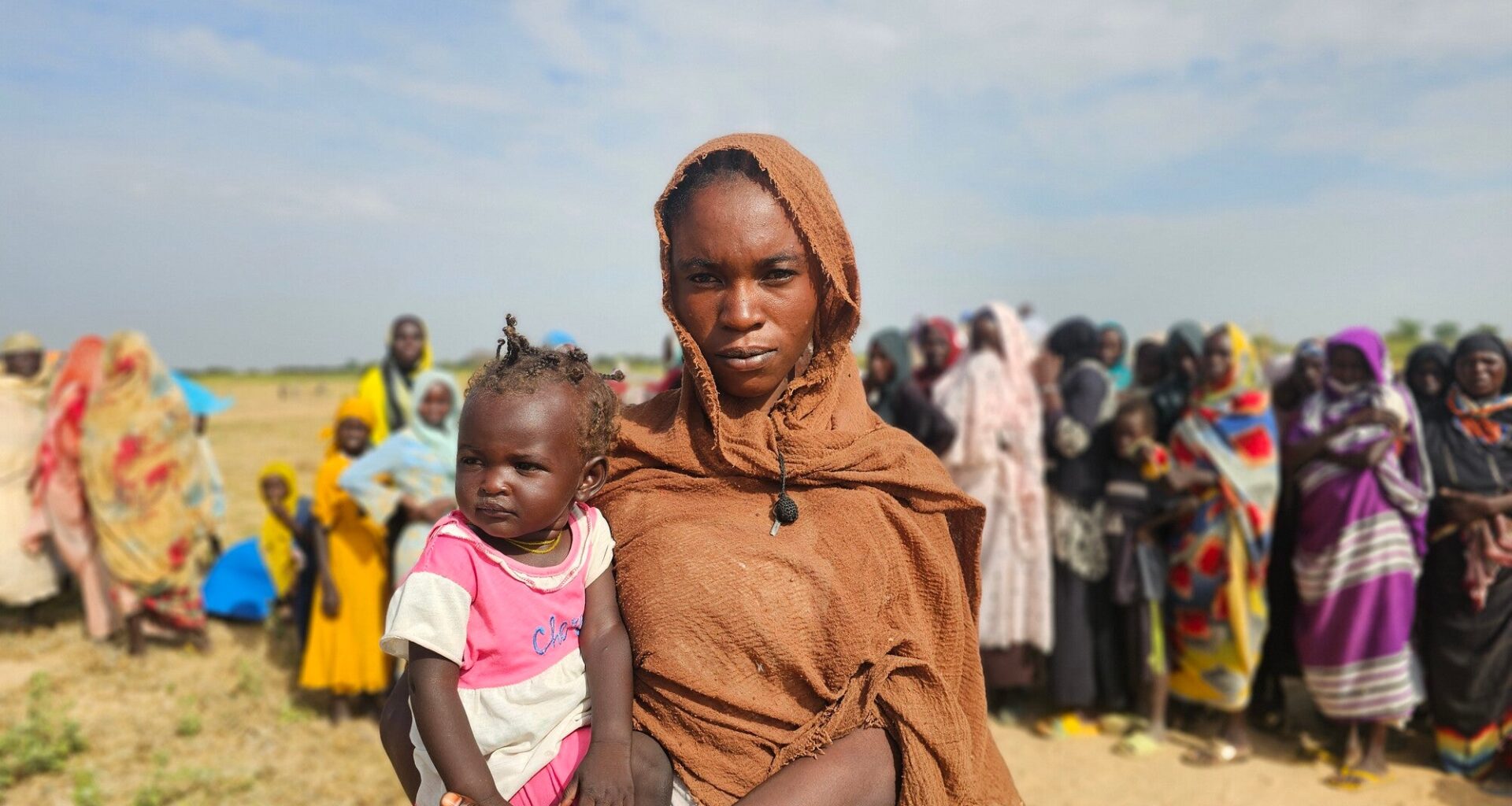Each night, they collapsed on the dry ground, resting just enough to rise again. Far from the sounds of war, they listened for the sound of children still strong enough to cry.
Under the blazing sun, surrounded by flies, there was no shelter or shade. At times, explosions and gunfire broke the silence. “I only know I’m somewhere else because I can no longer hear shooting,” Maria says. “Here, we sleep on the floor. A few neighbors could bring pots and mats, but I only have the shawl I am wearing.”
For days, Maria and the others felt lost, overwhelmed by fear and exhaustion. Yet, they kept moving, walking toward a place where the sounds of explosions dwindled.
Maria pushed forward with each step, driven by a fierce need to protect her baby, whose life depended entirely on her strength and determination. Slowly, the silence grew deeper, and they crossed the border to a different country – Chad – without knowing they had left the conflict behind them.
“At night, we hear only the crying of the children that still can cry. But the sounds of war are gone. We are still alive. But we have no more strength left,” finishes Maria and turns to the group of women and children huddled together behind her.
Maria leaves to dig for water again, despite the numbness in her fingers. She still walks and stands up straight because fleeing also means the will to survive.
Caring means survival — and hope
Maria could have given in. But caring is stronger than exhaustion. It is the deep instinct to protect, endure, and survive that pushes people like her forward, even when the path is shadowed with pain and loss.
